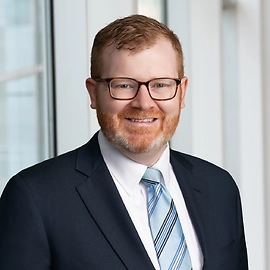The Medicare Payment Advisory Commission ("MedPAC") met in Washington, DC, on September 8-9, 2016. The purpose of this and other public meetings of MedPAC is for the commissioners to review the issues and challenges facing the Medicare program and then make policy recommendations to Congress. MedPAC issues these recommendations in two annual reports, one in March and another in June. MedPAC's meetings can provide valuable insight into the state of Medicare, the direction of the program moving forward, and the content of MedPAC's next report to Congress.
As thought leaders in health law, Epstein Becker Green monitors MedPAC developments to gage the direction of the health care marketplace. Our five biggest takeaways from the September meeting are as follows:
- MedPAC expects Medicare spending growth to outpace GDP, with total Medicare spending to reach approximately $1 trillion by 2025
MedPAC began its September meeting with a discussion of the projected growth in the Medicare program. Although the growth in both Medicare and overall health care spending slowed from 2009 to 2013, the Congressional Budget Office ("CBO") and the Medicare Trustees ("Trustees") project that total Medicare spending will return to growing at a rate that outpaces gross domestic product ("GDP") growth. Driven by an increase in both enrollment and per beneficiary spending, the CBO and Trustees project that total Medicare spending will grow at an average rate of 7 percent annually through 2025; if these projections are accurate, the Medicare program will almost double in size—from $600 billion in 2015 to approximately $1 trillion 2025. - MedPAC predicts the trends in Medicare to trigger action from the Independent Payment and Advisory Board in 2017
MedPAC staff expects the growth in Medicare spending to trigger action from the Independent Payment and Advisory Board ("IPAB") at some point in 2017. Created by the Affordable Care Act, IPAB is an independent board tasked with proposing Medicare policies designed to reduce spending growth. As of now, no one has been appointed to IPAB. If there are no members when Medicare growth triggers IPAB action, IPAB's authority will transfer to the Secretary of Health and Human Services. The Secretary will then be required to fulfill IPAB's role, and the Secretary's savings proposals will automatically become law unless Congress affirmatively acts to block the proposals. - Physician practice sizes continue to grow, and a greater number are affiliating with health systems and hospitals
MedPAC staff, using the SK&A Office-based physician database (a commercial database file with information on almost 600,000 physicians), determined that the number of physicians who reported as affiliated with a health system or hospital rose from 34 percent in 2012 to 39 percent in 2014. Over that same time period, the percentage of physicians working in practices with more than 50 physicians grew from 16 percent to 22 percent. MedPAC plans to look deeper into the size and affiliation of physician practice groups, including the geographic distribution of practice groups, to more accurately understand the infrastructure needed to move towards alternative payment models. - MedPAC will focus on recommending steps for adjusting the clinician fee schedule to address "misvalued" services
MedPAC expressed concern that certain clinician services, mainly primary care, are undervalued and undercompensated as a part of the clinician fee schedule. Accordingly, MedPAC will continue to look at recommendations to improve the Relative Value Scale Update Committee (or "RUC") process and make suggestions to increase payment for primary care services, including a potential partial capitation payment for primary care services. - MedPAC is considering how to evaluate initiatives for reducing avoidable hospitalizations of long-stay nursing facility residents
MedPAC staff gave an overview of provider initiatives to reduce avoidable hospitalizations of nursing facility residents. These initiatives included efforts made in conjunction with the Center for Medicare and Medicaid Innovation that feature a new three-part payment model. The new model will make payments to facilities for providing treatment for qualified conditions, increase payments to clinicians for providing treatment in nursing facilities, and establish a new payment to providers who conduct care coordination in nursing facilities. MedPAC is planning on developing measures to evaluate the success of these initiatives at reducing cost and improving beneficiary care.
Blog Editors
Authors
- Member of the Firm
